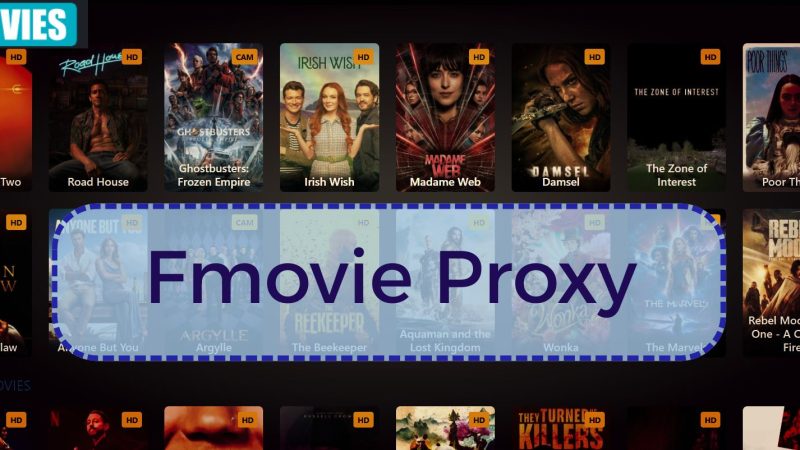How can you find reliable internet providers near you for point-to-point networks?

Just imagine a world where there is no internet – no instant messaging, no streaming videos, and no virtual meetings. Tough to imagine, right? The internet plays a crucial role in our lives today. Using it we connect to the globe at large. For delivering a speedy and reliable connection, a point-to-point network comes across as a smart choice. Such networks allow seamless communication between two different locations, making them crucial for educational institutions, co-living businesses, logistics, retail, healthcare, financial services and others.
Examples of point-to-point network applications –
Remote connectivity
Point-to-point networks are a lifeline for remote locations and towns, bringing them into the digital world. These networks bridge the connectivity gap, enabling access to information, education, and essential services.
Corporate connectivity
Large corporations often use point-to-point networks to establish secure and fast communication between their headquarters and branch offices. This ensures efficient data exchange, seamless collaboration, and centralised management.
Educational institutions
Colleges and schools use point-to-point connections to offer online learning materials, facilitate communication between distinct campuses and conduct virtual classes.
Tips for finding reliable internet service providers near you for point-to-point networks.
Customer Reviews
Read online reviews and testimonials to get insights into the quality of service provided by different ISPs. Before making any decisions, delve into the experiences of other customers. Check out the online testimonials, reviews, and ISP ratings you are considering. Such first-hand accounts can offer valuable insights into service quality, customer satisfaction and reliability. Positive reviews online from individuals or businesses who have utilised point-to-point networks can assist you in gauging the internet provider’s credibility.
Local research
Start by researching internet providers near you. Look for ISPs that specialise in point-to-point network solutions. Begin your journey by exploring the internet service providers available in your locality. A simple online search using keywords like “internet providers near me” can help you identify potential candidates. Pay attention to ISPs that specifically mention their expertise in point-to-point network solutions. These providers are more likely to understand the technical intricacies and requirements of establishing a reliable point-to-point connection.
Technical support
Reliable technical support is essential. Make sure the ISP offers timely assistance in case of any issues. Technical issues can arise unexpectedly, and having access to reliable technical support is crucial. Inquire about the ISP’s technical support options, response times, and availability. A responsive support team can help troubleshoot and resolve issues promptly, minimising downtime and ensuring a smooth point-to-point network experience.
Ask for recommendations
Get in touch with family, friends or colleagues who have some experience with point-to-point internet connection. Personal recommendations can be useful. Their real-world experiences as well as insights can endow you with a clearer idea of what to expect from distinct ISPs. Word-of-mouth referrals even come with feedback that can help guide your decisions.
Speed options
Check the available speed options. A trustworthy ISP must offer a range of speeds matching your needs. The internet speed connection is an essential parameter. Distinct activities whether it is file transfer, video conferencing, or browsing, demand differing bandwidth levels. A reputable ISP should offer a variety of speed options to cater to different user requirements. Ensure that the ISP can provide the necessary speeds to support your online activities effectively.
Coverage area
Ensure the ISP’s coverage area includes your location. This is crucial for establishing a point-to-point connection. Before you get too excited about a particular ISP, verify that their coverage area includes your location. Since point-to-point connections require direct line-of-sight between transmitter and receiver, the ISP must have the infrastructure in place to cover your area. Without proper coverage, establishing a reliable point-to-point connection becomes nearly impossible.
Latency and reliability
When you are assessing a suitable internet option, it is essential to factor in two parameters – reliability and low delay. These parameters become particularly essential for real-time activities such as online calls and video conferencing. Having a low-latency and stable internet network is necessary for hassle-free and smooth communication. Now, here’s where leased lines play a considerable role. A leased line provides exclusive and dedicated connection, which means low delay and highly reliable connectivity, ensuring a seamless experience.
Scalability
If your needs grow, the ISP should be able to scale the connection accordingly. As your usage requirements evolve, your internet needs may change. Inquire about the ISP’s scalability options. A reliable ISP should be able to accommodate increased bandwidth demands as your business or personal needs expand over time.
Service level agreement (SLA)
Review the SLA provided by the ISP. It should outline uptime guarantees and support response times. The Service Level Agreement (SLA) outlines the terms of service, including uptime guarantees and support commitments. Carefully review the SLA provided by the ISP to understand what level of service you can expect. Look for guarantees on uptime and response times for technical support, as these aspects reflect the provider’s commitment to delivering reliable services.
Installation process
Understand the installation process and timeline. A professional installation ensures optimal network performance. A proper installation process is the foundation of a successful point-to-point network. Ask the ISP to explain the installation steps and timeline. A professional installation ensures that the equipment is set up correctly, optimising network performance and reducing the chances of disruptions in the future.
Future upgrades
Ask about the ISP’s plans for future upgrades and technology advancements. Technology is ever-evolving, and staying ahead of the curve is crucial. Inquire about the ISP’s plans for future upgrades, new technologies, and enhancements to their network. A provider that invests in staying current with advancements is more likely to offer you a future-proof solution.
Cost and contracts
Compare pricing plans and contract terms. Ensure there are zero hidden charges. Being aware of the cost structure is essential to avoid any kind of surprises later. Strike comparative analysis between pricing plans from distinct ISPs, and ensure you have clarity regarding what is added in every plan. Be wary of hidden fees or charges that might not be apparent upfront.
Example
Think of yourself as a manager of a huge IT firm with offices spread across PAN India. An uninterrupted internet connection is a must for your data management activities and software developments. To ensure high reliability and maximum uptime, you decide to consider a point-to-point network i.e., a leased line connection. Post extensive research and consultation with others, you find an ISP renowned for serving your company as they offer scalable speeds, uptime of 99.5 per cent, excellent customer support, and a trial period. The installation process is smooth, and soon you’re enjoying seamless video calls with clients and smooth online transactions, boosting your business’s growth.
Conclusion
Point-to-point networks provide the backbone for these connections, connecting urban and remote areas alike. By adopting practical tips as mentioned above, you can confidently navigate distinct ISPs and figure out a reliable one offering a seamless point-to-point network as per your need.






